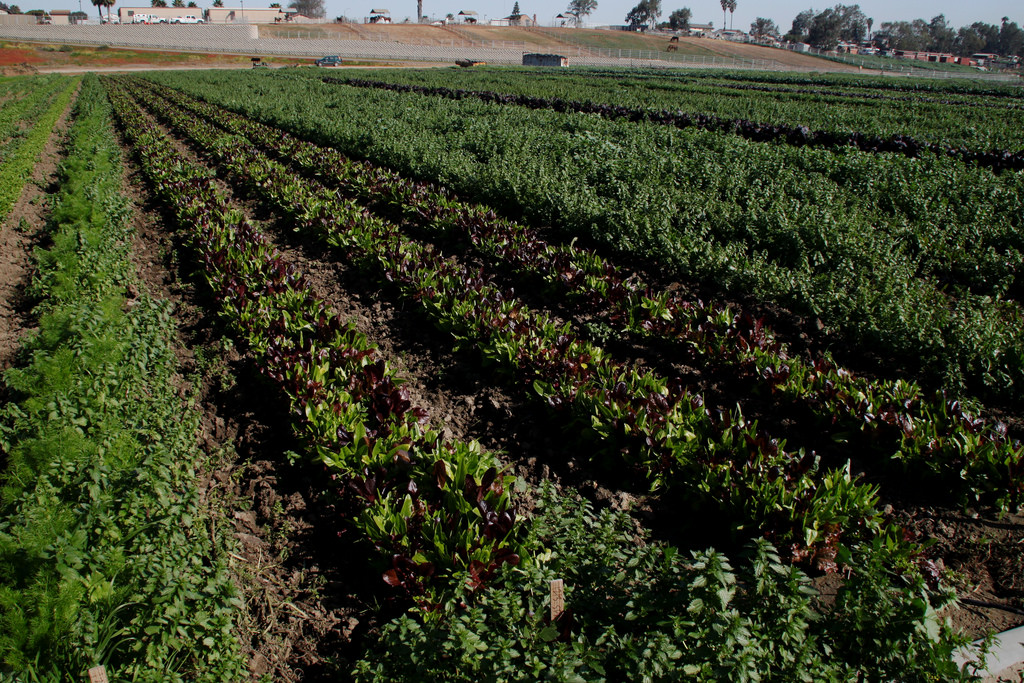|
Have you heard that eating foods that are in season is valuable, but may not know the exact reasons why? Perhaps you're a person who vaguely notices the fruits and vegetables at Farmer’s Markets and some local supermarkets change over time, but don’t necessarily choose one item over another because it’s in season. Or you might be someone who looks forward to a certain season because your favorite fruit or veggie is available in abundance! Although I have fond childhood memories of picking blackberries in the woods and helping my grandmother with her large garden, before I became a nutritionist, seasonal eating was not something I paid a whole lot of attention to. Now, after learning all the benefits, I am a regular at the local Farmer’s Market, and have become inspired to eat with the flow of nature. I’d like to share a few of my seasonal eating discoveries with you. Eating seasonally is good for your body. You’ll get more nutrients from local, recently picked, seasonal foods. Most foods reach their nutritional peak close to the time they are harvested, and many begin to lose their nutrient value after picking. If you’re shopping at a Farmer’s Market, it’s easy to get local, seasonal foods. But if you’re shopping at a grocery store, check the label to see the state or country of origin. The less distance that fruit or vegetable has had to travel the better. I feel lucky to live in California and have an abundance of choices in all seasons, but you can find yummy, truly local food in most parts of the United States. What’s in season where you live? I’d suggest doing a Web search for “seasonal foods [your state or region]”. Find a website of a local agricultural organization, farmers’ coalition, or farm-share company – most will have charts of local seasonal foods by month. Here in California, I’m excited about all the cruciferous vegetables we have in season now and throughout the year. Cruciferous vegetables support the liver so it can deal with all the toxins that come our way. The liver also processes and clears neurotransmitters and hormones that we no longer need, keeping you feeling good and your hormones stable. Cruciferous vegetables such as brussels sprouts and broccoli rabe are yummy vegetables currently in season in California. We can also enjoy cabbage, kale and cauliflower all year. Eating seasonally is good for your long term health. “Eating a seasonally based diet with lots of variety throughout the year is the cornerstone of preventive medicine,” said Dr. Preston Maring, a physician at Kaiser Permanente.(1) Dr. Maring finds his inspiration from multiple studies touting the benefits of eating an in-season, plant-focused diet, including reduced risks of cancer, better cholesterol numbers, improved vascular health, weight loss and more. Eating seasonally is good for your soul. Eating seasonally allows you to step into the flow of nature, rather than working against it. According to Stanford University’s Dr. Katie Curhan, studies have found that when interacting with nature humans experience reduced stress and anger, increased feelings of calmness, and “a more concrete awareness of the life cycle.” (2) If you’re inspired, you can consider growing your own food, as gardening can be very meditative. Participating in meditative activities can activate our parasympathetic nervous systems, eliciting a greater sense of calm. Interacting with our communities can be soothing to our souls too. You can connect with local farmers at your neighborhood Farmer’s Market, and spend time getting to know your neighbors. Eating seasonally is good for the earth. Local, seasonal produce can be farmed and harvested without too much extra effort and a reduced need for pesticides. Plus, local food doesn’t have to travel as far, positively contributing to our carbon footprint. To learn more about the health benefits of eating seasonally, and the healing properties of specific foods, join me and my colleagues on Thursday, April 7 in Walnut Creek for The Healing Power of Nature. It’s a free, 90-minute workshop that you won’t want to miss! Learn more and RSVP... Resources: (1)http://www.motherearthliving.com/food-and-recipes/sustainable-food/locally-grown-seasonal-food-zmoz12ndzmel.aspx?PageId=2#ArticleContent (2) https://bewell.stanford.edu/features/power-of-nature http://www.clevelandclinicwellness.com/food/SeasonalEating/Pages/introduction.aspx Omnivore’s Dilemma http://www.westonaprice.org/childrens-health/feeding-the-family-when-its-too-hot-to-cook/ http://www.mindbodygreen.com/0-4807/10-Reasons-to-Eat-Whats-In-Season.html http://www.naturalnews.com/035575_seasonal_food_diet_health.html Photo credit: Stacy Spensleyhttps://www.flickr.com/photos/notahipster/4366374300/in/album-72157623010544930/
3 Comments
3/1/2020 08:11:39 pm
Now that you have cited all the reasons why eating seasonally is good for us, I am so much willing to try it as soon as possible! I haven't tried it yet nor know something about it, that's why I am so much willing to try it. Actually it is more associated with healthy eating, that's why I am looking forward to make it work for me. I am not really sure what is that something that is waiting for me, but I hope that it will be great!
Reply
3/31/2023 02:48:03 am
I am not really sure what is that something that is waiting for me, but I hope that it will be great!
Reply
Leave a Reply. |
Dawn Preisendorf,
|
Location6536 Telegraph Ave. Suite A101
Oakland, CA, 94609 Work with us in Oakland, near Berkeley, or anywhere via Zoom. |
|







 RSS Feed
RSS Feed